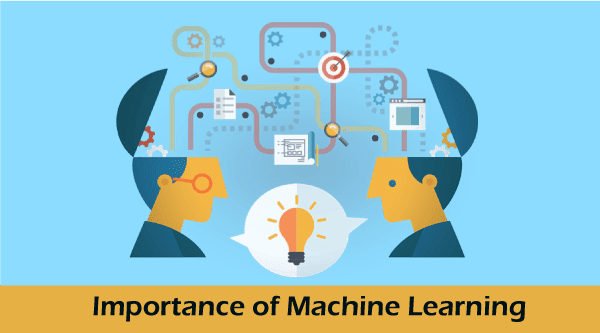Data Collection Companies and the Future of AI:Opportunities and Challenges

Introduction:
Data collection company are organizations that specialize in gathering, analyzing, and interpreting data from various sources to provide insights to businesses, government agencies, and other entities. These companies use various tools and technologies to collect data from diverse sources such as social media, websites, surveys, sensors, and other digital channels.
The future of artificial intelligence (AI) is closely intertwined with data collection companies as they provide the raw data needed to train and improve AI models. AI-powered systems are increasingly being used in various industries, from healthcare and finance to retail and manufacturing, to automate processes, make better decisions, and improve customer experiences.
What are the challenges and opportunities presented by AI?
Artificial Intelligence (AI) presents both challenges and opportunities. Here are some of them:
Challenges:
- Job displacement: As AI becomes more capable of performing complex tasks, it may displace human jobs in many industries, leading to unemployment or underemployment.
- Bias: AI algorithms are only as good as the data they are trained on. If the data is biased, the AI system will be biased as well.
- Privacy: AI algorithms require vast amounts of data to train effectively. This data often contains personal information that can be used to identify individuals, raising concerns about privacy.
- Regulation: There is a need for proper regulation to ensure that AI is used ethically and responsibly.
- Safety: Autonomous AI systems, such as self-driving cars, pose safety risks if they malfunction or are hacked.
Opportunities:
- Efficiency: AI can automate many tasks, leading to increased efficiency and productivity in industries ranging from healthcare to manufacturing.
- Personalization: AI can analyze vast amounts of data to personalize products and services for individual consumers.
- Improved decision making: AI can provide insights and recommendations that improve decision-making in fields such as finance, healthcare, and marketing.
- Innovation: AI has the potential to unlock new discoveries in fields such as science and medicine.
- Social good: AI can be used for social good, such as identifying patterns in large datasets to improve public health, or predicting natural disasters to help with disaster response.
Overall, the challenges and opportunities presented by AI depend on how we choose to develop and deploy this technology. Careful consideration of ethical and social implications is needed to ensure that AI benefits society as a whole.
What challenges do companies face when implementing AI?
Implementing AI can bring significant benefits to companies, such as increased efficiency, better decision-making, and improved customer experience. However, there are also several challenges that companies may face when implementing AI, including:
- Data quality and availability: AI algorithms require large amounts of data to learn and improve over time. If the data is of poor quality or not available, the algorithms may not perform as expected.
- Lack of skilled talent: AI implementation requires specialized skills such as data science, machine learning, and software engineering. Finding and retaining skilled talent can be a significant challenge for companies.
- Integration with existing systems: Integrating AI with existing systems and processes can be challenging, particularly if the legacy systems are outdated or not designed to work with modern AI technologies.
- Ethical considerations: AI can raise ethical concerns such as bias, privacy, and security. Companies need to consider these issues when designing and implementing AI systems.
- Cost: Implementing AI can be expensive, especially if the company needs to invest in new hardware, software, or infrastructure. The costs of ongoing maintenance and updates should also be taken into account.
- Regulatory compliance: AI systems may be subject to regulatory requirements, such as data protection and privacy laws. Companies need to ensure that their AI systems comply with these regulations.
- User adoption: Employees may be resistant to using AI systems, especially if they perceive them as a threat to their jobs. Companies need to ensure that employees are trained and educated about the benefits of AI to encourage user adoption.
Overall, companies need to carefully consider these challenges when implementing AI to ensure that they can realize the benefits of AI while minimizing the potential risks and drawbacks.
What is the importance of AI in data collection?
Here are some specific ways that AI is important in data collection:
- Automated data collection: AI can help automate the process of collecting data from various sources, including social media, websites, and IoT devices, among others. This automation saves time and ensures that the data is collected consistently and accurately.
- Data preprocessing: Before data can be analyzed, it needs to be preprocessed, which involves tasks such as cleaning, formatting, and normalizing the data. AI can help automate this process by identifying patterns and anomalies in the data, making it easier to identify and correct errors.
- Data analysis: AI can help analyze large volumes of data quickly and accurately, using techniques such as machine learning, natural language processing, and computer vision. This analysis can provide valuable insights into customer behavior, market trends, and other important factors.
- Predictive modeling: AI can be used to build predictive models that can help forecast future trends and identify potential risks or opportunities. These models can be used to inform business decisions and improve outcomes.
How GTS.AI can be a right data collection company
Overall, GTS.AI's combination of high-quality data, customized solutions, experienced team, scalability, and cost-effectiveness make it a great choice for companies looking for data collection services for machine learning like audio data, Image Data Collection text data, along with Adas annotation and data annotation services.data collection companies have a significant role to play in the future of AI, providing the data needed to train and improve AI models. However, they must also address the challenges associated with data privacy, accuracy, and transparency to ensure that AI systems are developed and used in an ethical and responsible manner.





Comments
Post a Comment